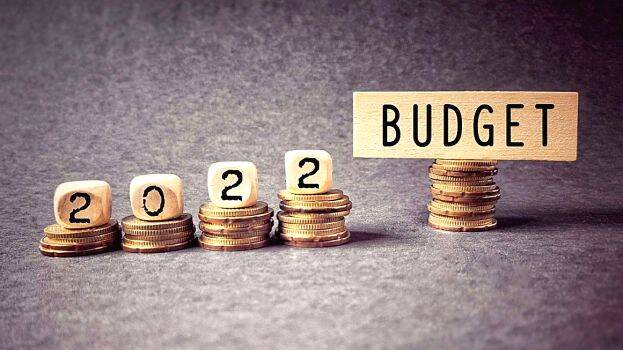

The biggest feature of the Union Budget presented by Nirmala Sitharaman yesterday was that it did not have the charms of a normal Union Budget. Another feature was that the budget speech was reduced to one and a half hours by including only relevant matters. The forthcoming Assembly elections in five states, including Uttar Pradesh, have influenced the budget. Perhaps that was why the Centre did not include anything that would make everyday life more difficult. However, the budget did not offer anything new to the common people and the middle class. There was a lack of clarity and accuracy as only important facts were included in the speech. One can take comfort in the fact that no extra burden was imposed anyway.
The Finance Minister's announcement that the country achieved significant economic growth despite the adverse conditions is reassuring. In the current year, it has achieved a growth of 9.2 per cent. Although the growth is expected to slow down a bit the next year, GDP growth is expected to remain around 8-8.5 percent. Other assessments will depend on how this growth is reflected in people's lives. The Finance Minister claims that the government's goal is to ensure a better life for the poor and middle class. This is why the government gave stress to projects that aim to provide housing, drinking water and energy for all. The government's aim is comprehensive development for the next 25 years. For this, emphasis will be given to four areas. The most important among these is the project called PM Gati Shakti. The project which aims to achieve infrastructure development will cover the entire country. It has been announced that 25,000 km of new national highways will be constructed in three years. Hill transport development, 80 lakh new houses, drinking water for 60 million families and a capital investment of 7 lakh crore are all expected to create huge job opportunities.
Although the railway budget was also included in the general budget, no significant plans or announcements were made in this sector. Some of the few projects that were announced are 400 new Vande Bharat Expresses, 2,000 km of new rail lines and 100 new rail cargo terminals. It is not clear which states will benefit from them.
Rs 2.37 lakh crore has been earmarked for crop procurement in the wake of the year-long farmers' strike. The Finance Minister also promised that wheat and paddy will be stockpiled in large
quantities. There will be a special scheme to promote non-fertilizer farming practices. With the implementation of the project for the integration of five major rivers in the country, it is expected that the agricultural sector will grow further.
What made the budget even more unattractive was the fact that there were no income tax deductions expected by the payroll section. Existing tax slabs will remain the same. The finance minister was not ready to change the income tax sector. The reduction of the corporate sector tax surcharge to seven per cent has drawn criticism. The opportunity to renew and submit IT returns, including lost income, is new.
Existing schemes for youth, women and farmers have been revised or amended. Three schemes will be introduced for the empowerment of women. The education and health sectors have not been given much consideration. Some of the highlights include digital university, internet service to villages, special TV channels for digital learning, the renovation of two lakh Anganwadis and the PM eVIDYA program for children. A project of Rs 2 lakh crore will be implemented for the small and medium enterprises to ensure the growth of the industrial sector and increase employment. According to the Finance Minister, 60 lakh new jobs have been created in the industrial sector this year.
Since the survival of the labour sector depends on the growth of the manufacturing sector, more investment is essential. The manufacturing sector will become more active only when the private sector joins hands with the government. The decision to manufacture 68 per cent of the defence equipment in the country opens up huge opportunities for the private sector as well. Employment opportunities may increase exponentially when large investments come up in the infrastructure sector. The government aims at the all-round growth of the economy without giving further concessions.
This year's budget consists of several announcements such as 5G services, core banking facilities at 1.5 lakh post offices, e-passport, promotion of electric vehicle sector, land registration e-system, single registration for industries, comprehensive reform of SEZ rules, new digital currency, Rs 50,000 crore for the tourism sector and green bonds.
The decision to sanction Rs 1 lakh crore as an interest-free loan to the states is welcome. However, the demand of the states including Kerala to extend the period for payment of GST compensation was not considered. The Finance Minister did not consider the projects submitted by Kerala, including K-Rail. The feature of the budget is that the opposition has a lot to blame on the government. There is also an allegation that the budget did not provide anything for the common man to rejoice over.